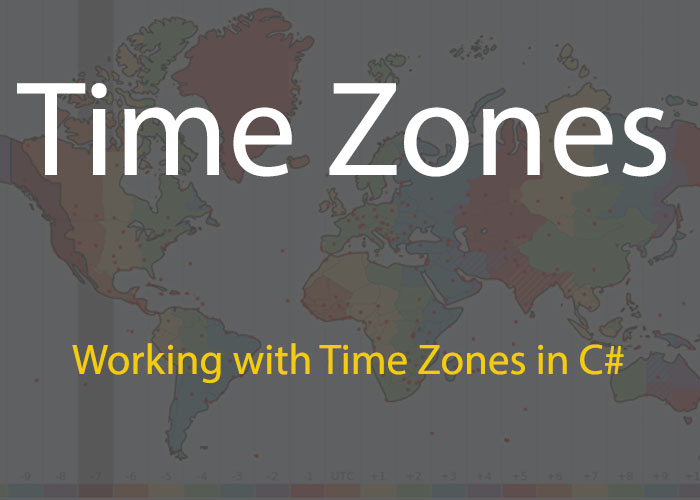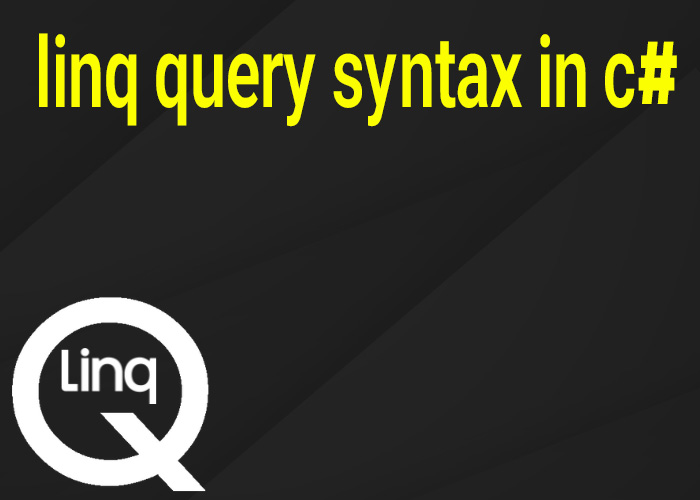Managing time zones is a crucial aspect of developing reliable and consistent applications, especially when users are scattered across different geographical regions. In C#, you have a set of powerful classes and methods for handling time zones effectively. This article will guide you through how to work with time zones in C#, including examples of retrieving, converting, and setting time zones in your applications.
The complexities of managing time zones arise because of differences in regional settings, the existence of daylight saving time, and the need for synchronization across multiple regions. In this article, we will delve into the concepts and practical implementation details that will help make your application robust when dealing with date and time issues.
What is a Time Zone in C#?
A time zone in C# refers to a geographical region that observes a uniform standard time for legal, commercial, and social purposes. The TimeZoneInfo and DateTime classes in C# provide the tools necessary to work with different time zones. The TimeZoneInfo class is particularly useful for handling different regions’ time zones accurately.
In C#, the TimeZoneInfo class provides a comprehensive representation of time zones, allowing developers to retrieve details like the time zone’s ID, display name, standard time offset, and support for daylight saving time. On the other hand, the DateTime class is useful for representing specific moments in time.
How to Get Time Zone in C#
You can get the system’s current time zone by using TimeZoneInfo.Local. This provides the time zone that is set on the local system.
TimeZoneInfo localZone = TimeZoneInfo.Local;
Console.WriteLine($"Local Time Zone: {localZone.DisplayName}");
If you need to get all available time zones, you can use TimeZoneInfo.GetSystemTimeZones():
ReadOnlyCollection<TimeZoneInfo> timeZones = TimeZoneInfo.GetSystemTimeZones();
foreach (TimeZoneInfo zone in timeZones)
{
Console.WriteLine(zone.DisplayName);
}
This is especially useful if you need to present a list of possible time zones for your users to choose from. Applications that involve user settings, scheduling, or interaction with global audiences can benefit from having such options readily available.
How to Get Local System Time Zone in C#
To retrieve the local system’s time zone, you can use TimeZoneInfo.Local or the TimeZone.CurrentTimeZone property, though the latter is deprecated in favor of TimeZoneInfo. Using TimeZoneInfo is recommended because it is more feature-rich and aligns better with modern time zone handling.
TimeZone localTimeZone = TimeZone.CurrentTimeZone;
Console.WriteLine($"Local Time Zone Standard Name: {localTimeZone.StandardName}");
The recommended way is to use TimeZoneInfo.Local as it provides more functionalities, including better support for daylight saving changes and broader regional support.
How to Handle Time Zones in C#
Handling different time zones becomes necessary when your application serves users in different regions. Time-related issues, such as appointments or scheduled tasks, require the correct conversion between time zones to ensure accuracy. You can use TimeZoneInfo.FindSystemTimeZoneById to work with a specific time zone.
TimeZoneInfo easternZone = TimeZoneInfo.FindSystemTimeZoneById("Eastern Standard Time");
Console.WriteLine($"Eastern Time Zone: {easternZone.DisplayName}");
Using the FindSystemTimeZoneById method, you can handle and convert between different time zones based on their TimeZone IDs. These IDs are standardized names, such as “Pacific Standard Time” or “Eastern Standard Time,” that identify a particular time zone.
Practical Examples of Handling Time Zones
Imagine you are building an event scheduling application. You might need to store the event’s time in UTC to maintain consistency across time zones and then convert it to the user’s local time zone when they view the event. In this scenario, TimeZoneInfo becomes extremely useful to convert between different zones and display the correct time to each user.
Convert DateTime to Another Time Zone in C#
To convert a DateTime object from one time zone to another, you can use TimeZoneInfo.ConvertTime.
DateTime utcTime = DateTime.UtcNow;
TimeZoneInfo pacificZone = TimeZoneInfo.FindSystemTimeZoneById("Pacific Standard Time");
DateTime pacificTime = TimeZoneInfo.ConvertTimeFromUtc(utcTime, pacificZone);
Console.WriteLine($"Pacific Time: {pacificTime}");
Here, we are converting UTC time to Pacific Standard Time. It is always a good practice to store time in UTC format in databases to avoid complications with time zone changes and daylight saving time. When displaying the time to users, you can convert the stored UTC time to their local time zone.
How to Get DateTime with Time Zone in C#
Sometimes, you need a DateTime object that includes the time zone information. While the DateTime class in C# does not natively include time zone info, you can use the DateTimeOffset class instead. DateTimeOffset represents a point in time, typically expressed as a DateTime and an offset from UTC.
DateTimeOffset localDateTime = DateTimeOffset.Now;
Console.WriteLine($"Local DateTime with Offset: {localDateTime}");
DateTimeOffset is particularly useful when you need to ensure that your DateTime values are unambiguous and include context about the offset from UTC.
Why Use DateTimeOffset?
Using DateTimeOffset instead of DateTime provides more reliability when dealing with time zones because it prevents the ambiguity that arises from not knowing the associated time zone or offset.
TimeZoneInfo.ConvertTime in C#
The TimeZoneInfo.ConvertTime method can convert a DateTime value between different time zones. Here is an example:
TimeZoneInfo easternZone = TimeZoneInfo.FindSystemTimeZoneById("Eastern Standard Time");
DateTime now = DateTime.Now;
DateTime easternTime = TimeZoneInfo.ConvertTime(now, easternZone);
Console.WriteLine($"Eastern Time: {easternTime}");
This method is essential when dealing with users in different locations who need to view events or appointments in their local time.
Adding Time Zone to DateTime in C#
To include a time zone offset in a DateTime object, use DateTimeOffset:
DateTimeOffset dateWithOffset = new DateTimeOffset(DateTime.Now, TimeZoneInfo.Local.GetUtcOffset(DateTime.Now));
Console.WriteLine($"Date with TimeZone Offset: {dateWithOffset}");
Adding an offset is crucial when persisting dates to a database that should include time zone information. This way, you maintain the context for the saved date.
C# Time Zone IDs
To work with different time zones, you need to know the Time Zone ID. You can find a list of time zone IDs using the TimeZoneInfo.GetSystemTimeZones() method.
foreach (TimeZoneInfo timeZone in TimeZoneInfo.GetSystemTimeZones())
{
Console.WriteLine(timeZone.Id);
}
These IDs are standardized and correspond to common time zone names like “Pacific Standard Time”, “Eastern Standard Time”, etc. It is essential to use these IDs for consistency and to avoid hardcoding time zone offsets.
C# Time Zone Conversion Example
Consider an example where you need to convert the current time to a specific time zone like Eastern Standard Time.
DateTime utcNow = DateTime.UtcNow;
TimeZoneInfo estZone = TimeZoneInfo.FindSystemTimeZoneById("Eastern Standard Time");
DateTime estTime = TimeZoneInfo.ConvertTimeFromUtc(utcNow, estZone);
Console.WriteLine($"Eastern Standard Time: {estTime}");
This type of conversion is common when logging events or handling schedules where users from different time zones need to see the same data in their local context.
Get Time in Another Time Zone in C#
To get the current time in a different time zone, use TimeZoneInfo.ConvertTimeBySystemTimeZoneId:
DateTime currentTime = DateTime.Now;
DateTime japanTime = TimeZoneInfo.ConvertTimeBySystemTimeZoneId(currentTime, TimeZoneInfo.Local.Id, "Tokyo Standard Time");
Console.WriteLine($"Current time in Tokyo: {japanTime}");
How to Get Time Zone from DateTime in C#
To get the time zone offset from a DateTime, use DateTimeOffset or TimeZoneInfo.GetUtcOffset:
DateTime now = DateTime.Now;
TimeZoneInfo localZone = TimeZoneInfo.Local;
TimeSpan offset = localZone.GetUtcOffset(now);
Console.WriteLine($"Time Zone Offset: {offset}");
Getting the correct offset is crucial for understanding the time difference between UTC and the local time.
Get Browser Time Zone in C#
If you need to get the user’s browser time zone, you typically need to interact with the front-end. You can use JavaScript to get the time zone offset and pass it to your C# backend:
var timeZoneOffset = new Date().getTimezoneOffset();
You can send this value to the server for further processing. This interaction helps ensure that the server knows the user’s local time zone and can adjust data accordingly.
C# TimeZoneInfo List
Using TimeZoneInfo.GetSystemTimeZones(), you can list all available time zones, which allows users to select a time zone for scheduling purposes.
ReadOnlyCollection<TimeZoneInfo> zones = TimeZoneInfo.GetSystemTimeZones();
foreach (TimeZoneInfo zone in zones)
{
Console.WriteLine(zone.DisplayName);
}
This is particularly useful in applications that involve travel planning, international meetings, or any scenario where multiple time zones are relevant.
How to Set Time Zone in C#
You can set a DateTime to a specific time zone using TimeZoneInfo to ensure consistency across multiple locations. First, get the correct time zone using FindSystemTimeZoneById and then convert the DateTime as required.
TimeZoneInfo timeZone = TimeZoneInfo.FindSystemTimeZoneById("Pacific Standard Time");
DateTime localTime = DateTime.Now;
DateTime convertedTime = TimeZoneInfo.ConvertTime(localTime, timeZone);
Console.WriteLine($"Converted Time: {convertedTime}");
Setting a DateTime to a particular time zone ensures that your application displays or calculates times consistently for all users.
C# Create DateTime in a Specific Time Zone
If you want to create a DateTime in a particular time zone, use TimeZoneInfo in combination with DateTimeOffset.
TimeZoneInfo easternZone = TimeZoneInfo.FindSystemTimeZoneById("Eastern Standard Time");
DateTime easternTime = TimeZoneInfo.ConvertTime(DateTime.Now, easternZone);
Console.WriteLine($"Eastern Time: {easternTime}");
This approach is very useful when you need to create and store times specific to user locations.
How to Convert String to DateTime with Time Zone in C#
Converting a string that includes time zone information into a DateTime object in C# requires careful parsing to ensure that the time zone is appropriately handled. You can use DateTimeOffset.Parse or DateTime.Parse in combination with TimeZoneInfo to achieve this.
Here’s a basic example of how to convert a string with time zone information into a DateTime:
string dateTimeString = "2023-10-20T15:00:00 Eastern Standard Time";
DateTime parsedDateTime;
TimeZoneInfo easternZone = TimeZoneInfo.FindSystemTimeZoneById("Eastern Standard Time");
if (DateTime.TryParse(dateTimeString, out parsedDateTime))
{
DateTime convertedDateTime = TimeZoneInfo.ConvertTime(parsedDateTime, easternZone);
Console.WriteLine($"Converted DateTime: {convertedDateTime}");
}
else
{
Console.WriteLine("Failed to parse the date time string.");
}
In this example, DateTime.TryParse is used to parse the date and time from a string, and TimeZoneInfo.ConvertTime is used to apply the appropriate time zone.
For strings that explicitly include offsets (e.g., “2023-10-20T15:00:00-05:00”), DateTimeOffset can be used:
string dateTimeWithOffset = "2026-10-20T15:00:00-05:00";
DateTimeOffset dateTimeOffset = DateTimeOffset.Parse(dateTimeWithOffset);
Console.WriteLine($"Parsed DateTime with Offset: {dateTimeOffset}");
This approach is particularly useful if the string format includes a UTC offset, ensuring the correct time zone context is preserved. Always make sure to handle parsing exceptions properly to avoid runtime errors when the string format is unexpected.
C# Get Time Zone Offset in Minutes
To get the time zone offset in minutes in C#, you can use the TimeZoneInfo.GetUtcOffset method in combination with DateTime. This is particularly useful when you need to calculate the difference between the local time and UTC in minutes.
Here’s an example of how you can achieve this:
DateTime now = DateTime.Now;
TimeZoneInfo localZone = TimeZoneInfo.Local;
TimeSpan offset = localZone.GetUtcOffset(now);
int offsetInMinutes = (int)offset.TotalMinutes;
Console.WriteLine($"Time Zone Offset in Minutes: {offsetInMinutes}");
In this example, GetUtcOffset is used to get the offset as a TimeSpan, and TotalMinutes is used to convert the time difference into minutes. This approach is particularly helpful when working with applications that need to communicate time zone differences in a simpler unit, such as minutes.
Practical Uses
- Scheduling Applications: For meeting planners or calendars, knowing the offset in minutes is useful to calculate the exact time difference between users.
- Backend Processing: When storing or processing dates, it may be necessary to convert time zone offsets into minutes to standardize calculations or database storage.
- Logging and Monitoring: Understanding the offset in minutes helps in logging accurate times for events across various time zones.
How to Get Time Zone Abbreviation in C#
To get the abbreviation for a specific time zone, you need to use custom logic since TimeZoneInfo does not provide abbreviations directly. For example, you could use a dictionary or other mappings to convert full time zone names to abbreviations.
Here is an example of how to implement a custom dictionary:
Dictionary<string, string> timeZoneAbbreviations = new Dictionary<string, string>
{
{ "Eastern Standard Time", "EST" },
{ "Pacific Standard Time", "PST" },
// Add other time zones as needed
};
string abbreviation = timeZoneAbbreviations["Eastern Standard Time"];
Console.WriteLine($"Time Zone Abbreviation: {abbreviation}");
Summary
Working with time zones in C# is made easier by the TimeZoneInfo and DateTimeOffset classes, which allow developers to accurately handle different regional times, convert between them, and manage daylight saving time effectively. By utilizing methods like FindSystemTimeZoneById, ConvertTime, and GetSystemTimeZones(), you can ensure that your application is time zone aware and provides consistent and reliable results.
When working with time zones, always consider the effects of daylight saving time, the needs of your users in different regions, and the importance of UTC for storing time in a consistent manner.
Key Takeaways
- TimeZoneInfo and DateTimeOffset are the core classes for managing time zones in C#.
- Use TimeZoneInfo.FindSystemTimeZoneById to access a specific time zone.
- Convert between time zones using TimeZoneInfo.ConvertTime.
- For a complete list of time zones, use TimeZoneInfo.GetSystemTimeZones().
- Use DateTimeOffset if you need to work with time zone-aware DateTime values.
- Store DateTime values in UTC format in your database for consistency.
- Use TimeZoneInfo.Local to obtain the local system time zone.
This guide should give you a comprehensive understanding of time zones in C# and help you manage time zone-related requirements effectively in your applications. Whether you’re developing scheduling tools, global applications, or simply need to work with times in a user-friendly manner, understanding time zone management is critical for creating robust and reliable software.





